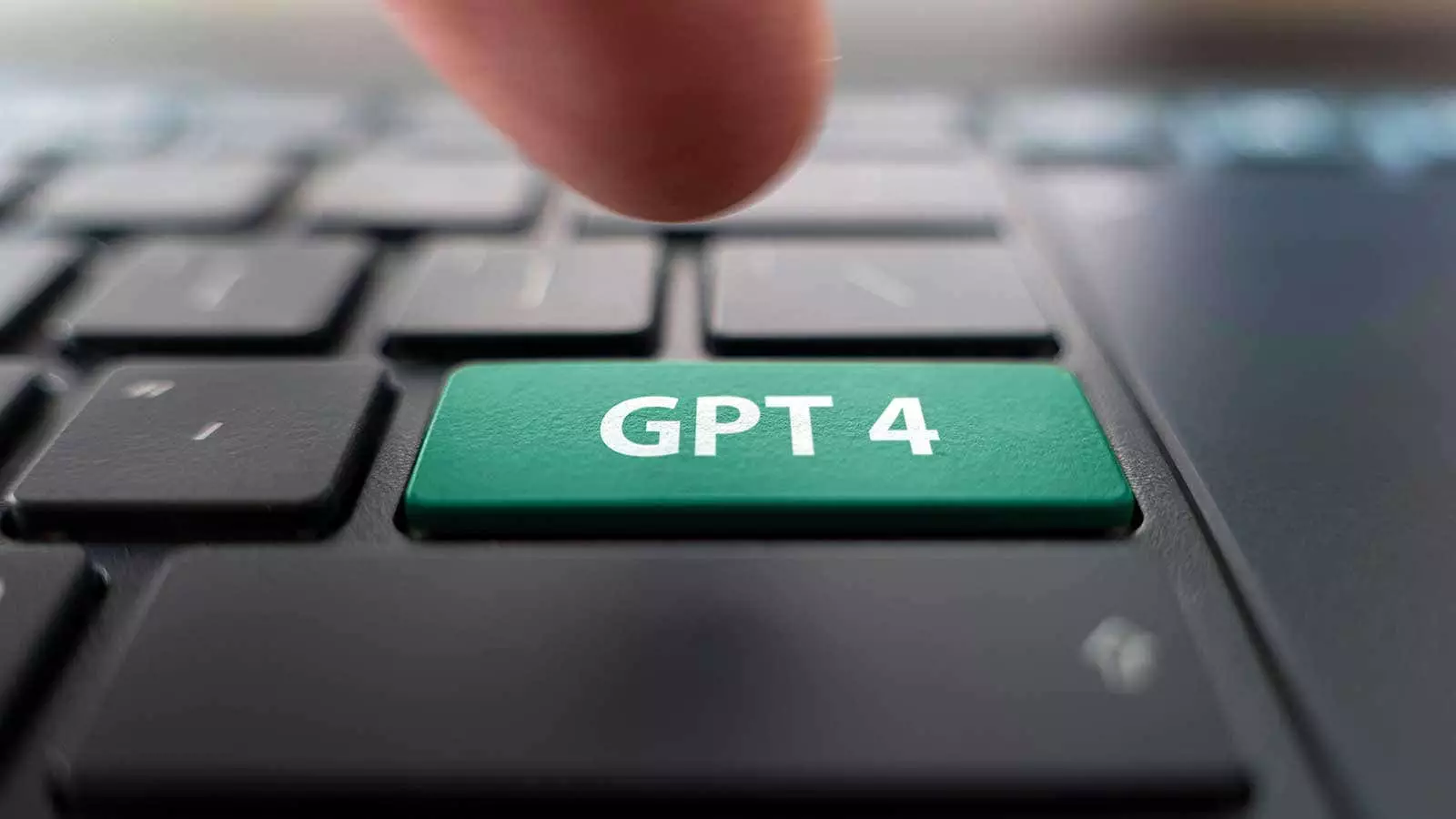In a groundbreaking study, a generative artificial intelligence (AI) program called GPT-4 has emerged as a more accurate diagnostic tool compared to clinicians when it comes to identifying missed diagnoses in elderly patients with extensive medical histories and long hospital stays. The study, conducted by researchers from the Department of Medicine at Queen Mary Hospital and University of Hong Kong, analyzed the medical histories of six patients over the age of 65 with delayed diagnoses. The results revealed that GPT-4 accurately diagnosed four out of six patients, whereas clinicians only accurately diagnosed two out of six patients.
The use of GPT-4 in diagnosing patients proved to be a game-changer, especially when it came to differential diagnoses. When differential diagnoses were included, the accuracy of GPT-4 improved to five out of six patient diagnoses, whereas clinicians only managed to correctly diagnose three out of six patients. This highlights the potential of AI in identifying potential diagnoses that may have been missed by clinicians.
Enhancing Clinical Decision Making
GPT-4 not only provided accurate diagnoses but also had the ability to analyze clinical situations with diagnostic difficulties. By alerting clinicians to possible underlying malignancies or side effects of drugs, the AI program assists in enhancing clinical decision-making processes. This feature becomes particularly valuable in cases involving elderly patients who have been admitted to the hospital for a prolonged period without a definitive diagnosis. GPT-4 could help clinicians expedite the diagnosis, resulting in timely intervention and treatment.
The success of GPT-4 in diagnosing patients is attributed to the extensive medical histories available for each individual. These histories included crucial radiological and pharmacological information, enabling the AI program to make accurate diagnoses. The choice to focus on older patients was deliberate, as they often suffer from multiple comorbidities that complicate the diagnostic process. GPT-4 offers clinicians a valuable tool to identify diagnoses they might have otherwise missed, reducing the time to initial diagnosis for this population.
Successful Diagnoses and Limitations
The AI program demonstrated its capability to accurately diagnose various conditions among the patients in the study. These conditions included polymyalgia rheumatica, mycobacterium tuberculosis-related hemophagocytic lymphohistiocytosis, metronidazole-induced encephalopathy, and lymphoma. However, GPT-4 encountered challenges with multifocal infections, struggling to pinpoint the source of recurrent infections and failing to suggest clinically relevant testing for infections in most patients.
GPT-4 as a Tool for Clinicians
It is crucial to view GPT-4 as a tool that aids clinicians in their decision-making process. The AI program increases clinicians’ confidence in diagnoses and provides suggestions similar to those of a specialist. This is especially beneficial in lower-income countries where specialist availability is limited. GPT-4 can alert clinicians to overlooked aspects of a patient’s clinical history, such as potential side effects of drugs or abnormal findings on imaging. These alerts become particularly relevant when immediate consultations with subspecialties are not possible.
Study Limitations and Cautions
It is important to note that this study had a small sample size. The analysis was conducted using the medical histories of only six patients from a single hospital unit specializing in Geriatrics at Queen Mary Hospital. Additionally, the authors cautioned that GPT-4 is susceptible to regurgitating incorrect information based on inaccurate medical histories. While the study showcased the promising potential of generative AI in diagnosing patients with extensive medical histories, it also brought forth new challenges that clinicians must be aware of.
The study clearly demonstrated that GPT-4 outperformed clinicians in diagnosing elderly patients with delayed diagnoses. The AI program showcased its ability to accurately diagnose conditions that had been missed by clinicians and provided valuable insights for complex cases. While GPT-4 has its limitations, it remains a powerful tool that can significantly benefit clinicians, especially in cases involving older patients with prolonged hospital stays. The results of this study open up new possibilities for the use of artificial intelligence in healthcare, paving the way for improved diagnosis and patient care.


Leave a Reply